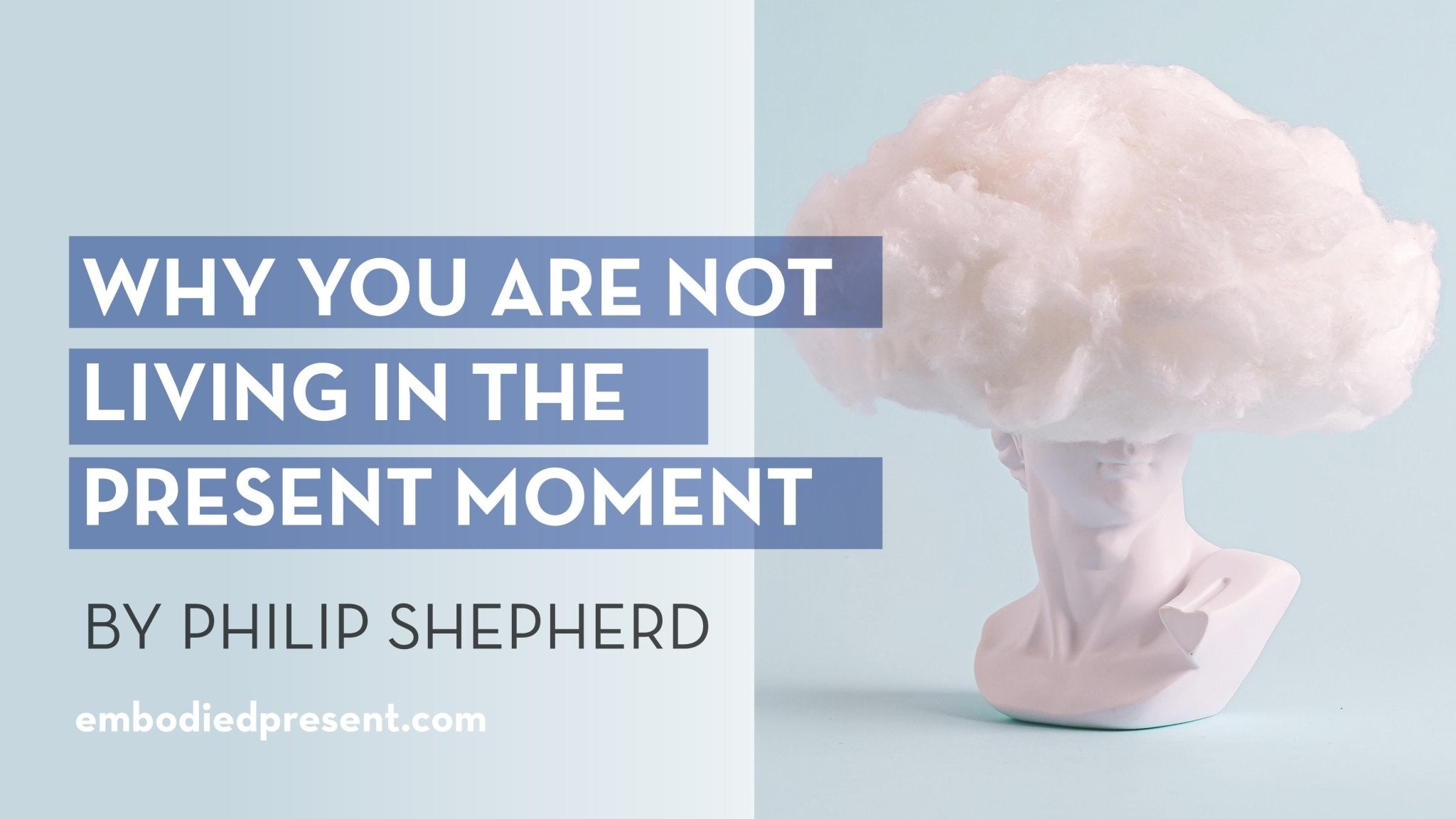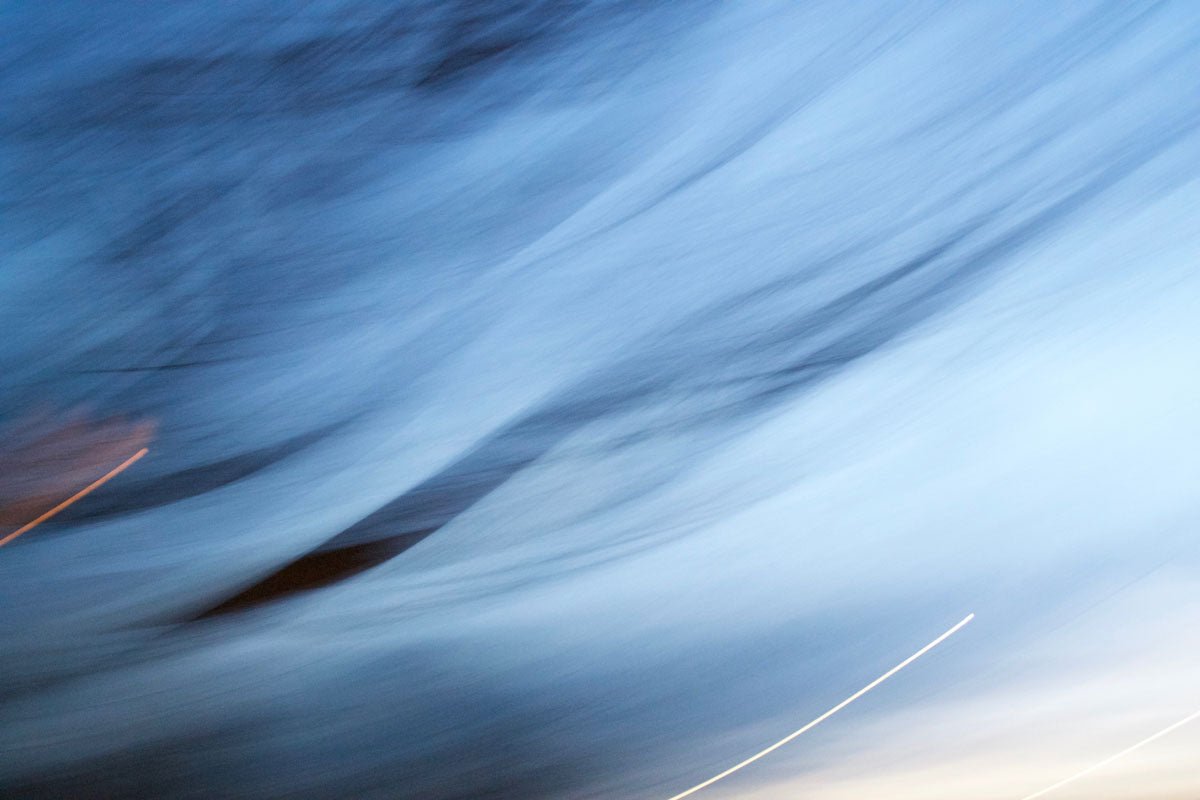The Cloud of Unknowing is a penetrating bit of writing by an unknown mediaeval mystic, composed to counsel a young student in his quest to seek God. The author warns that God “may not be known by reason, He may not be gotten by thought, nor concluded by understanding.” In fact, the author declares, He can be found only by love. God goes by many names in many cultures – and some cultures decline even to name the divine presence – but the understanding that objective knowledge will fail us in our attempts to find God is a familiar one. We might similarly observe that reason is not a suitable means for those seeking to find reality. However earnestly you might try, you cannot reason your way into the present. You find it by loving it.
So we might say that God and reality are both blanketed in a “cloud of unknowing” that can only be pierced by love. This can be unsettling for us, because our culture tells us that knowledge is supremely powerful, and that if you examine anything closely enough you can know it. Unfortunately, that methodology doesn’t apply to the all-encompassing whole: move in close enough and it disappears, whether that whole is God or reality, and all you are left with is pieces. The world’s wholeness is hidden from sight, as though in a cloud.
Whether we feel the mystery of world’s wholeness as nature, or God, or the present, or The Great Spirit, we could turn the issue around and ask what we might surmise about it – not directly, but by looking at the facts of the world. Supposing we were to ask, “What does the wholeness that harmonizes the world devote itself to?” The evidence is in plain sight. For instance, it is clear that however we feel that hidden wholeness, it is devoted to diversity. No two people are exactly alike, no two leaves are exactly alike, no two waves that wash along the shore are exactly alike. The world is a wild profusion of diversity endlessly reinventing itself. Nothing exists that doesn’t bespeak a love of diversity.
It’s also clear that the underlying wholeness loves change. All that exists in the world around us is transient. There is no fixed ‘reality’ – there is only the present, poised on the ceaseless flux of transience and change, as the world leaves what it once was and leans into what it will be. We might say that the love of transience is not withheld from anything in all the cosmos.
These two evident loves – of diversity and change – bathe everything in their radiance, such that there is no reality separate from them. How odd, then, to turn our gaze from nature to human nature, and observe that two of our deepest fears are of diversity and change. In general we feel uneasy in the face of diversity – we flinch from it: diversity of dress, custom, accent, race, belief, gender … We tend to fear difference. Nature plays between the poles of male and female as a pianist tickles the ivories up and down the keyboard, yet we are more comfortable if men and women conform to one of two gender identities. What nature adores, we mistrust.
Similarly, we fear change. The more change threatens, the more we cling to the status quo. That even happens when the status quo puts our future at risk. We would rather hold fast to our oil dependence, our consumer culture that turns everything it uses into garbage, our entitlement to eat whatever food we want, when we want it – we would rather ask the technocrats to invent yet more ways of propping up this status quo than to back away from it into a way of life that is less grasping, simpler, more grounded and more harmonious.
Our fear of what nature so abundantly loves puts us in conflict with it. So rather than being present to reality, we hold to our fantasy about it. The first step in healing that disconnect is something that must begin, I think, on an individual level. The issue is how to open our hearts to this teeming, miraculous world, to honor and celebrate its transience and to wonder at and appreciate its luminous diversity. Anything less than that will reinforce our disconnection; and that disconnection is allowing the world to perish around us.
Other posts
TEPP Facilitator Sarah Stewart-Brown writes about Radical Wholeness and TEPP
From Sarah Stewart-Brown of Wellbeing Ventures The TEPP Facilitator training is very rich; I came away after each of the three retreats with many insights and much more awareness of...
Why you are not living in the Present
After I made the video above, I thought some more about it, and put pen to paper, and wrote this slightly longer exploration of the subject. I feel the...
thewayisee
There’s a popular YouTube video (see below) of a baby named Piper squirming as her parents fit her first pair of glasses onto her face. Initially struggling, she settles, and...






Leave a comment